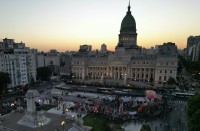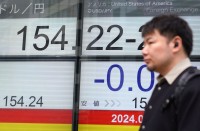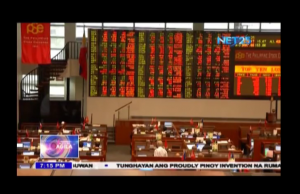MANILA, July 7 (Eagle News) —The National Economic and Development Authority (NEDA) reported that the country experienced the lowest level of inflation in June compared to the last two decades due to sufficient supply of food and moderate price pressures in energy and oil rates.
According to the Philippine Statistics Authority, headline inflation rate plunged further to 1.2 percent in June 2015 from 1.6 percent in the previous month, and 4.4 percent in June 2014.
NEDA officer in charge and deputy director general Emmanuel Esguerra said that the “June 2015 inflation rate is now the lowest, covering the monthly inflation series from 1995 to June 2015.”
He said the figure was also below the market expectation of 1.5 percent. It was also well within the inflation target range of 2.0 to 4.0 percent set by the government for 2015.
Headline inflation in the food subgroup eased in June 2015, (2.1% from 3.2%) following slower price adjustments in rice, meat, vegetables, and fruits.
Inflation is defined as a sustained increase in the general level of prices for goods and services. It is measured as an annual percentage increase. As inflation rises, every peso you own buys a smaller percentage of a good or service. The value of your money, in this case peso, does not stay constant when there is inflation.
Headline inflation is defined as a measure of the total inflation within an economy, including commodities such as food and energy prices such as prices of oil and gas, which tend to be much more volatile and prone to inflationary spikes.
Headline inflation may not present an accurate picture of an economy’s inflationary trend.
“Aside from the steady and sufficient supply of food, inflation benefited from reduced electricity prices due to lower fuel costs. The double-digit year-on-year decline in the prices of unleaded gasoline, diesel, kerosene, liquefied petroleum gas or LPG, and the decline in Meralco rates affected key oil and electricity-related commodities and services in the current month,” the NEDA official said.
On the other hand, non-food commodities reflected slight price increments as inflation partially increased to 0.4 percent in June 2015 from 0.3 percent in May 2015.
Meanwhile, core inflation which excludes selected volatile food and energy prices, declined to 2.0 percent from 2.2 percent in May 2015 and 2.8 percent in June 2014. It averaged at 2.3 percent in the first six months of 2015.
Core inflation (also non-food-manufacturing or underlying inflation) is calculated from a price index minus the volatile food and energy components.
“The slackening of the core inflation provides less pressure for interest rates to increase, and this bodes well for household consumption and further supports economic expansion moving forward,” Esguerra said.
The slowdown of inflation appears to be geographically broad-based as the price index in the National Capital Region dipped to 0.6 percent in June 2015 from 0.7 percent in May 2015 and 3.6 percent in the same period a year ago. Likewise, all regions except the Cordillera Administrative Region registered slower year-on-year price increases, thus, resulting in a tempered overall inflation of 1.4 percent in June 2015 from 1.8 percent in May 2015 and 4.7 percent same period a year ago.
“It is also worth noting that except for the Philippines, inflation in the ASEAN-5, which includes Indonesia, Malaysia, Singapore, and Thailand, generally posted upward adjustments in May and June 2015,” Esguerra added.
Esguerra further said that the government will remain cautious against any upside inflation risk, such as that arising from the occurrence of typhoons in the second half, which could be intensified by the prolonged El Niño.
“Efforts to monitor drought incidence in agricultural areas should be sustained to ensure that suitable policy actions are realized without delay. Timely importation of rice to augment domestic supply should serve as a ready measure to prevent the repeat of the high rice prices witnessed in the third quarter of 2013 until 2014 as these occurrences adversely affect the well-being of the citizenry,” Esguerra said.
Esguerra is OIC of NEDA while Economic Planning Secretary Arsenio M. Balisacan is on official business abroad from July 3-12, 2015.








